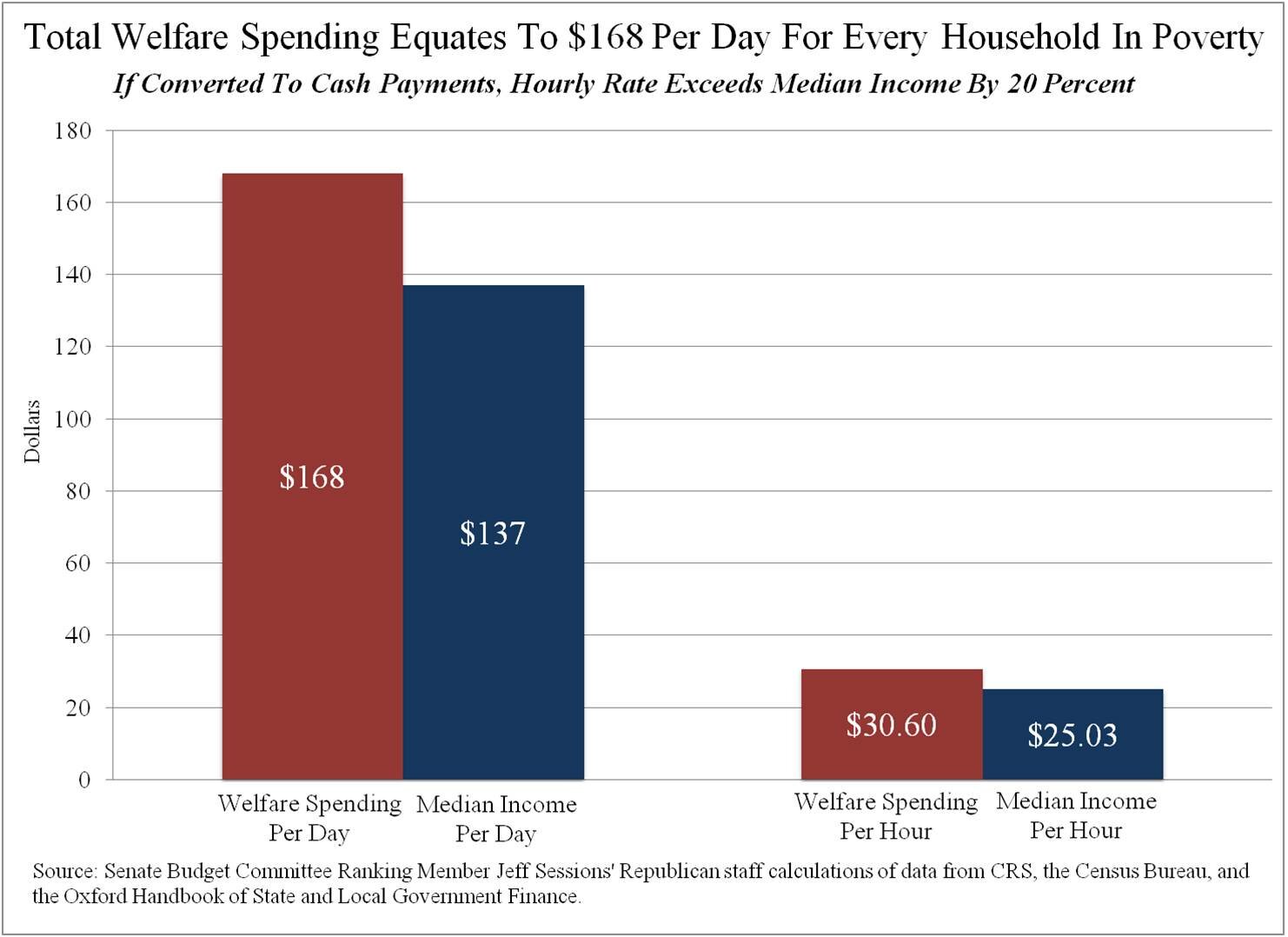
Benefits Buffet: Welfare Payouts Outpace Median Worker Income
December 17th, 2012Poverty is a serious problem. Sometimes families face circumstances that limit their income, and such misfortunes can create a domino effect, hamstringing their access to food, housing, and medical care. No one wants to see others go hungry. However, the policies enacted by governments in response to poverty often make matters worse.
Look at the example of welfare spending in the US. According to a report by The Daily Caller, when welfare spending is divided by the number of households in poverty, the result is over $61,000 per year, significantly higher than $50,054, which was the median annual income for households in 2011. If the government has spent enough money to elevate all poverty-stricken families in the US to the median household income level, then why are more and more people falling into poverty? Let’s examine.
The Costs of Corruption and Bureaucracy
Total welfare spending is not divvied up evenly among the poor. In fact, federal benefits are distributed through an almost unknowable number of departments and programs, many with overlapping purposes. In some cases, benefit dollars go unclaimed due to lack of publicity. Sometimes the dollars are earmarked to address specific financial problems that affect too small a number of individuals. Excess budgets are often consumed by departments themselves, who purchase new equipment or hire new administrators with leftover bucks.
Also, benefits programs often take the form of corporate welfare. Major corporations sometimes make out like bandits by acquiring lucrative contracts to provide a service “for free” to the poor. These dollars, along with those spent to hire administrators, wind up enriching the wealthiest among us, rather than helping poor families.
Meanwhile, the inflationary nature of our monetary system means that any benefits paid for by deficit spending or monetization of debt will cause inflation, thus increasing the cost of living for everyone. This creates an inflation treadmill — by the time benefits are allocated, they no longer provide for a standard of living.
Case Workers and Lawyers Make Out Like Bandits
Common-sense, intuitive standards for the distribution of benefits do not exist. It’s often considered legally inadvisable to attempt to collect welfare without the help of a lawyer, who of course costs money. Said lawyer often liaisons with a government-provided case worker, who also has a salary. The time and effort required to collect welfare benefits promotes the creation of a permanent dependent class, rather than helping individuals through a tight spot while they seek their own way out. Once a lawyer and case worker have crafted an iron-clad case as to why someone should be receiving a wide range of benefits, it is extraordinarily unlikely that said individual will return to the productive side of the economy. Think of it this way: if someone on benefits realizes that working a real job would reduce their take-home pay after taxes compared to what said individual is receiving via welfare, looking for a job becomes an act of insanity.
By removing the incentive to produce, the government allows individuals to extract resources from the economy without making any effort to replace them. This creates poverty as it reduces the number of products and services available to everyone. Too often, people assume dollars spent by the government on something actually produce more products for people to use. This is rarely the case. Increasing the number of dollars in an industry without increasing the number of products simply causes a rise in price. Poverty stricken families can’t eat dollars — they can only use them to purchase items that already exist.
No one wants to see their fellow citizens struggling to find food, shelter, or medical care, but government welfare spending now exceeds the median household income level per poverty-stricken household, and, somehow, poverty-stricken households are not getting the money. Printing money and giving it away in an effort to eradicate poverty is causing more poverty, as families at the median income level struggle to afford rising food, fuel, heating, education, and healthcare costs.
Visit http://www.SilverCircleMovie.com to learn more about our upcoming 3D animated film. Also, the Silver Circle graphic novel is available now at the following hyperlinks in full color and black and white.


